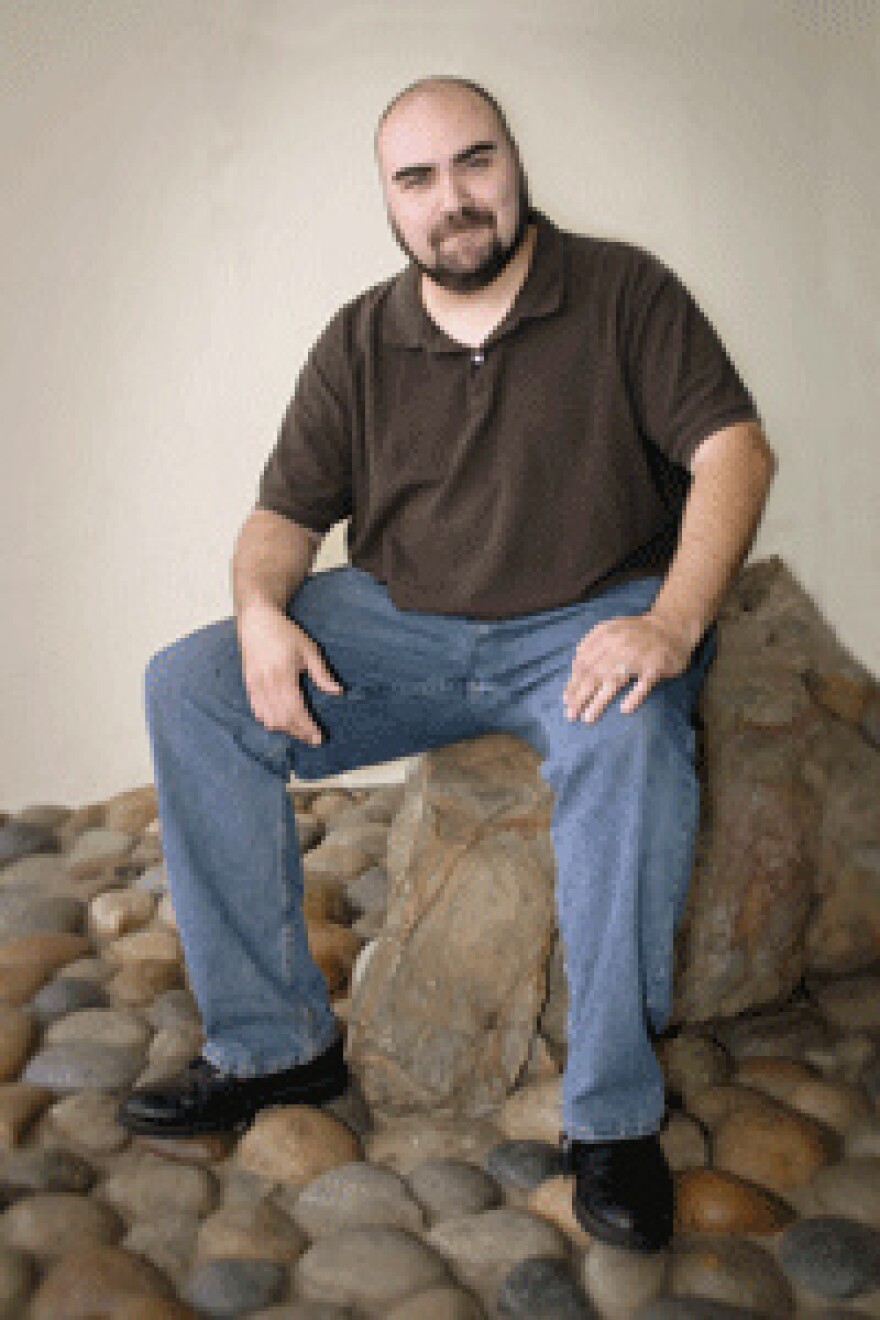When poet James Tyner was a child, he faced an uncertain future, including time spent homeless, and living in tough, gang-ridden neighborhoods in Southern California. He says two things helped "save" him: a love of literature and the city of Fresno.
He is now giving back to the community and sharing his love for his adopted hometown through a two-year appointment as the City of Fresno's first poet laureate. He recently joined us on Valley Edition to talk about his life, which includes time spent as a monk in the mountains of Spain, and his work, including his new poem "Fresno, California 2013."
Tyner may be the city's first official poet laureate, but he's not without company. Fresno has a rich tradition of poets and writers dating back to William Saroyan. Fresno's Philip Levine, who won the Pulitzer Prize in 1995, was named poet laureate for the United States in 2011. In 2012, former Fresno State professor Juan Felipe Herrera was named poet laureate for California. Tyner says that for too long, the city's wealth of talent in the world of poetry has been overlooked by most Fresnans.
In recent weeks, Tyner has been the subject of national media attention, with a feature story in the New York Times, and a segment on Boston's NPR station WBUR. Tyner says he's normally a quiet person, and not accustomed to the spotlight, but is honored to represent the city with his poetry over the next two years. Here are some highlights from our interview with Tyner.
Tyner on why Fresno is home to so many acclaimed poets:
"There was always a joke among poets, that everybody in the world knows about Fresno poets, except for Fresno. I was living in the mountains of Spain as monk, and here I am in the middle of nowhere, I mean no one around for miles. And one of the monks went out and brought back some newspapers, and he happened to bring me an LA Times. I wasn't in poetry at the time, so I opened up this LA Times, I was so happy to see my mother tongue, and it's about LA where I was originally born. And then I'm flipping through and there's this article on Fresno poets, this is about 1995-ish. And I was just so stunned, I wasn't into poetry but here is my hometown, Fresno, and this poetry movement." "There was a line in there, they asked one of the poets 'why do you think are all of these poets coming out of there' and she said 'I don't know, but I think it has something to do with the dust.' And in a sense I think she's right and I think further than that, there's this work ethic. It comes a little bit from Philip Levine and this working class poet, but more than just being working class, a work ethic. You know we have the fields out here, we have the dairies and there's this real sense of work. We all work. And we bring those sensibilities and that ethic to our poetry. And I think that's really what drives us and links us shoulder to shoulder together as Fresno poets."
Tyner on his goal as Fresno's poet laureate:
My main goal to put it in once sentence is simply to let Fresno be aware of what they have here in its rich culture. On a side note, I notice that a lot of poets laureate focus on a project, and I'm working on some ideas. They usually involve anything from poetry on buses to poetry in the airport. Juan Felipe Herrera, he's the poet Laureate of California, he did an anti-bullying campaign, very powerful stuff, and that's kind of what I'm leaning towards. I'm in talks with an organization out of LA that works with multiethnic, bi-racial bi-cultural children and families, and being one, I feel that might be my goal as poet laureate "I'm not afraid to say the city saved me. When I was a kid we were homeless for a little bit. We were jumping around living with different family members in Los Angeles and my mom decided we're coming to Fresno, that's where she was from. She brought us here and the city saved me. We were able to get our own house, the first time I ever lived in a house. Growing up in a real Mexican family in poor neighborhoods, there were gangs everywhere and a lot of rough stuff and I feel like things like literature saved me. I was an avid reader. And then the city itself provided programs and things like that for us that got me out of the streets and I think saved me. To be able to give back to the city is such a complete honor."
On becoming a monk in the mountains of Spain:
"I was out of high school, no one in my family went to college, so I had no clue what to do. I was kind of languishing. A cousin of mine said, 'hey, I know this school you can get into, it's free. Just come on down to LA.' So I believed him, I went down there, and he dropped me off at a monastery. I was not religious by any means. It was a culture shock for me and for the poor monks. Basically he was dating a girl at the time and the girl's mother was getting, studying monks into the local city college, and so they felt like they owed her a favor. So he got me in there. It was a good life. I loved the hard work. I loved being with people. It gave me time to be contemplative, and to research and to learn another language. I got into poetry years later, maybe finding that paper was the seed germinating."


